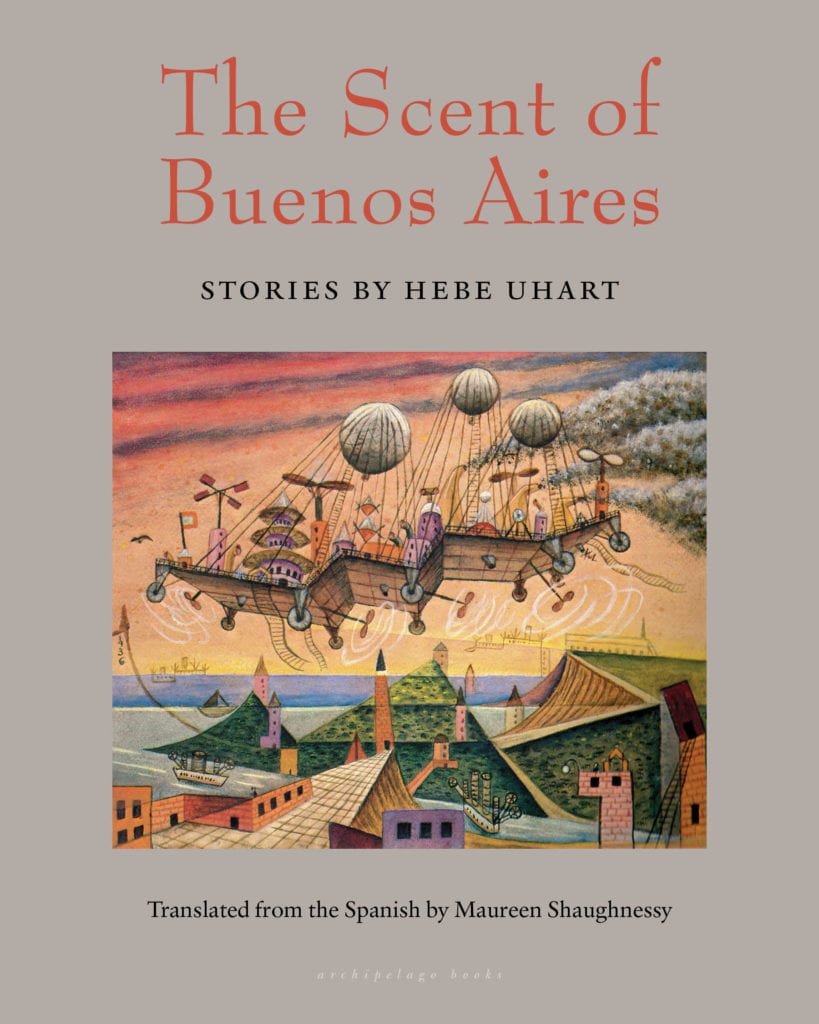Praise
These delicate tales of everyday lives in and around Argentina’s capital reflect on the passage of time and small pleasures. Uhart’s stories, filled with peculiar but familiar characters, are like wildflowers by the side of the road — easy to overlook if you’re not paying attention, yet delicate and beautiful.
Hebe Uhart’s characters are made of an almost palpable material. They are alive, and they seem to emerge from the page to tell us, “This one here is me, that one over there could be you."
How we move, how we walk, how we keep quiet: that is what Uhart observes in each of us. But also how we pause, how we sneeze, what onomatopoeias we use, how our being is revealed through everyday gestures that at times can contradict the ideas we claim to hold. It’s through these minute observations, and her repudiation of generalities, that the writer unfurls her tentacles to construct her characters.
A truly beautiful translation of one of the writers I admire the most. After reading Hebe Uhart we don’t have the impression of having closed a book: the stories and words echo the way they do when we come home after spending long hours conversing with a stranger, and discovering a new and valuable complicity.
Hebe is the best and the strangest. After decades of writing and publishing, Hebe became an author that dominated a central genre for the Argentine tradition: the short story. However, this has the geographic particularity of being transnational: when we think about stories in Argentina, we think about literature created in the Río de la Plata, between Argentina and Uruguay. And that was one of the strongest nuclei in Hebe’s literary identity, by which it was not a national but an inherently rioplatense literature.
The greatest contemporary Argentine writer.
Hebe's texts (her fiction as well as her chronicles) played with the world in a manner that didn't fully coincide with Viktor Shklovsky’s definition of defamiliarization, that disposition of finding the strange and the unfamiliar within the quotidian. This is perhaps because the quotidian perception of Hebe Uhart in the world was, in itself, lacking automatization from the beginning, being always full of amazement, of a cultivated sense of bewilderment. That register was then translated to her texts through a writing that was ingeniously natural, with a simplicity that was only simulated.
Her writing is so simple that it sometimes seems like it’s meant for children. But from simplicity to simplicity her reader penetrates into depths and labyrinths that one can only access when participating in the magic of a new world... It reveals a unique reality, or the fact that she, herself, is a unique and different reality.
The world of Hebe Uhart, which so intensely appears in her stories, is abundant, collective and absolutely personal ... She has given Argentine Literature countless unforgettable, exciting characters that establish, when talking or acting, when having certain feelings over others, a way of existing, of resisting, of withstanding.
Her short stories and vignettes from daily life shimmer with truth...Fans of writers from Alice Munro to William Trevor will find Uhart's work, whenever it appears in English, a delight.
Hebe Uhart is one of Argentina's finest storytellers.
Poised somewhere between narrative and sense memory, Uhart’s lens looks into sundry lives and renders the act of surveillance both venal and holy.
[Uhart] is one of the most singular and exciting female voices of recent decades in Latin America. Her unique body of work and her unforgettable voice lives on in many of today’s younger generation of writers emerging on the continent.
Extras
- Read “Coordination” from The Scent of Buenos Aires in The Paris Review
- Read this profile in Spanish by writers Mariana Enríquez and Eduardo Carrera on Hebe Uhart, her literary career, and her history in the world of letters.
- Revisit Hebe’s words in her 2017 speech after winning the Manuel Rojas Prize.
- Check out a translation of Guiding the Ivy by Hebe Uhart.
- Read “Tourists and Travelers” from The Scent of Buenos Aires in LitHub

